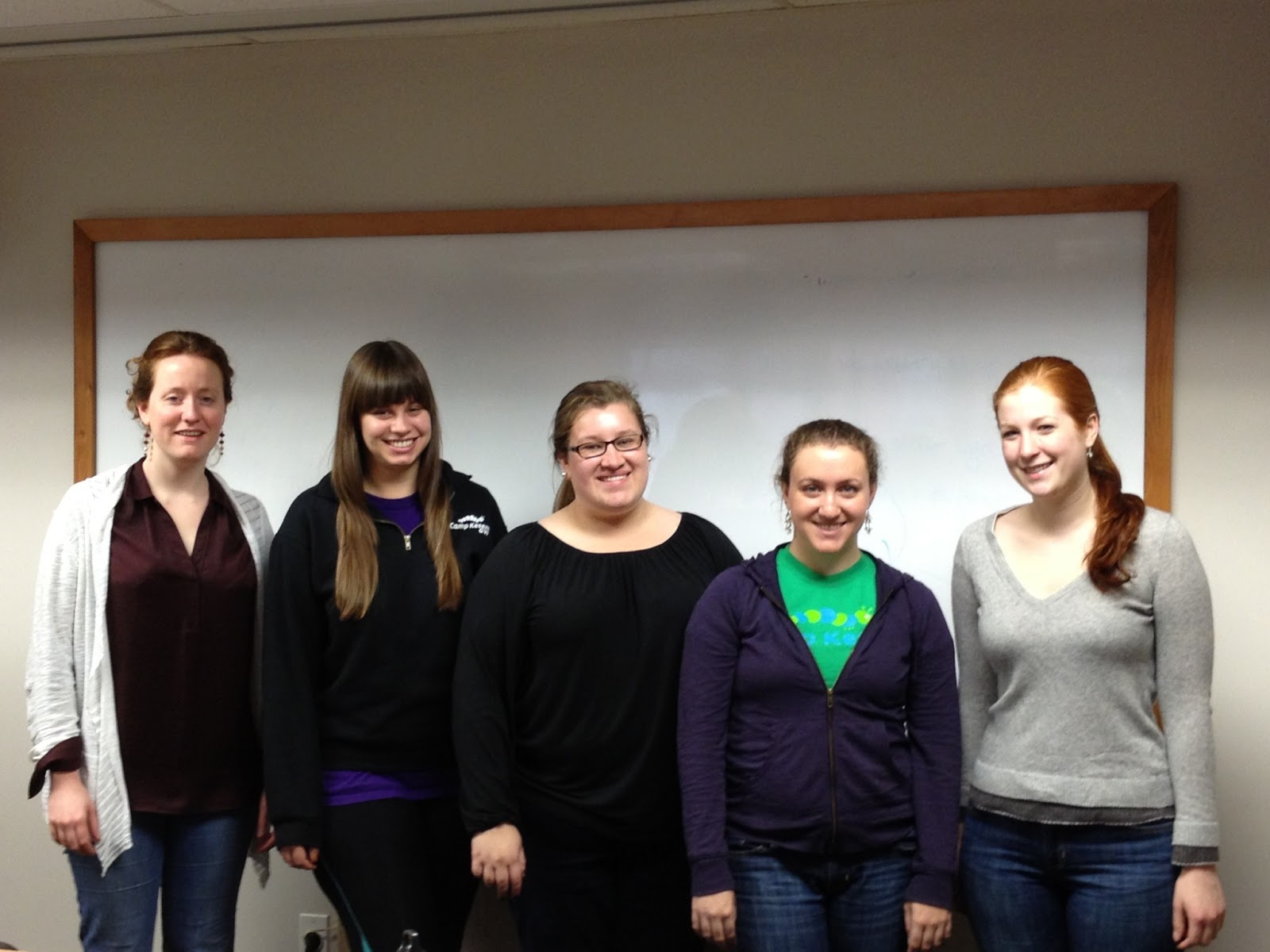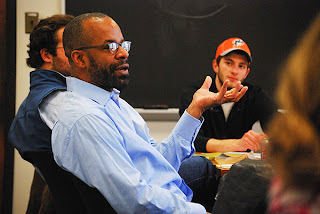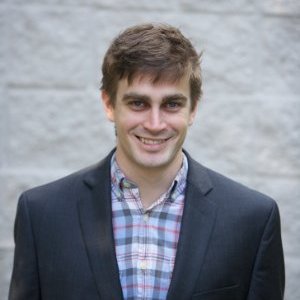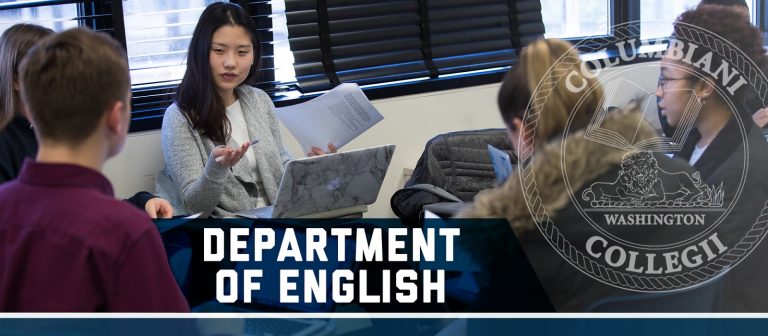As the Spring 2013 semester begins, we asked GW English PhD candidate Elizabeth Pittman, to reflect on her experiences teaching an innovative service learning course. It was a successful semester, marking the beginning of a fruitful collaboration between GW English and the PEN/Faulkner Foundation. Her reflections on the course are included here.
“Create dangerously for people who read dangerously. This is what I’ve always thought it meant to be a writer.” Edwidge Danticat, Create Dangerously: The Immigrant Artist at Work
“Schools are frontline institutions for putting teeth into democratic possibilities in the U.S. context.” Patricia Hill Collins, Another Kind of Public Education
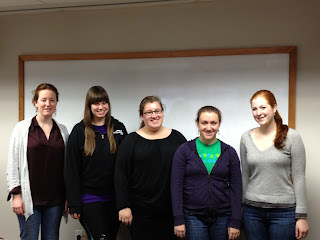 |
Pictured (left to right): Emma, Emily, Kaelyn, Stephanie,
and Mary Kate. Not pictured: Britt and Kate |
This semester I had the privilege to work with six creative and thoughtful students, five of whom were English majors, in a service-learning course. The class had a very busy and productive semester. The course allowed students to work with the
PEN/Faulkner Foundation, a leader in the support of contemporary and emerging writers as well as literary arts and education. This has been a truly collaborative class. Emma Snyder, the Executive Director of the PEN/Faulkner Foundation met with students every other week, and sometimes more often. She also attended our class meetings once a week on campus in Rome 771. In this space we generated exciting conversations about the nature of education, success, failure, and the growing role of digital platforms and technology in the literature classroom. The students had the amazing opportunity to work with Emma and to contribute to an ongoing venture.
 |
GW English Professor Edward P. Jones’s
Pulitzer-Prize Winning Novel |
Stephanie, Britt, Emily, Kaelyn, Mary Kate and Kate each thought of innovative ways to teach contemporary novels, poetry, short stories, and memoir. For their collaboration with PEN/Faulkner
Writers in Schools curriculum project, each student read three novels and researched, wrote, and finalized three separate lesson plans for a high school class. Mary Kate even developed lesson plan materials for
The Known World by
Edward P. Jones. While the class was organized around the theme of contemporary writing and the citizen reader, in our class discussions, we often participated in current debates surrounding the future of education in America, particularly around issues of standards in the classroom, assessing instructors, and methods for teaching writing and critical thinking skills. The quotations above, hopefully, provide a sense of some of the guiding themes and outcomes of our class discussions. For example, one of the major “values” we settled upon as a class throughout the semester following a reading of bell hooks’s
Teaching to Transgress and Sheridan Blau’s
The Literature Workshop is the value of confusion in the classroom as both a pedagogical tool and for the individual learner.
We explored approaches to teaching contemporary fiction as well as the crucial methods and skills that pursuing knowledge in the fields of the humanities enables as well as the critical skills that studying only literature can teach us. We thought about the CORE curriculum standards and the increasing prevalence of teaching non-fiction writing in order to teach expository and argumentative writing, rather than fiction. We thought about practical questions such as, how does teaching affect the way you read a text? What are the best practices for reading a novel that you intend to teach? We brainstormed writing lesson objectives and in-class student exercises. However, throughout the semester we also tackled philosophical questions such as how we identify and determine success and failure as a culture, as well as how we place education in the trajectory of an individual’s life path in U.S. culture.
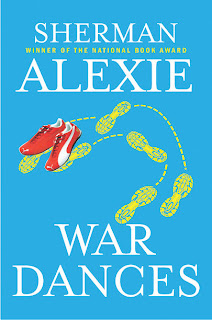
In addition to developing a lesson plan portfolio that will eventually be hosted by the PEN/Faulkner Foundation and used by high school teachers as part of an open access curriculum project, the students also crafter end of the semester projects on a topic of education policy or reform of their choosing. We read Sherman Alexie’s
PEN/Faulkneraward-winning War Dances, a multi-generic text in which the author explores loss, fatherhood, race relations, and social conflicts. Students were asked to connect their research about public education practices in some way to his work, either to discuss a skill that his text elucidates or how his text works as a conceptual tool. One student wrote on cultural perceptions of private versus public educations and the use of school vouchers to “promote” students and specific forms of education. One student wrote on tracking students in the classroom, and another examined the role of multiculturalism in the development of curriculum, as a reform ideal, inclusive curricula, as well as the notion, following hooks, of the teacher’s position within the classroom. Following up on our examination of writing pedagogy and how we learn to write analytical argument as literature students, another student examined
the “catch method” alluded to in a recent essay published in
The Atlantic.
This course represents an exciting direction for the English department, as students were able to think about the ways their college education impacts both their future careers and the role of literary studies in the future of the academy. We even reflected on course readings by using Twitter and tumblr, thereby opening the classroom to a larger public of readers.



